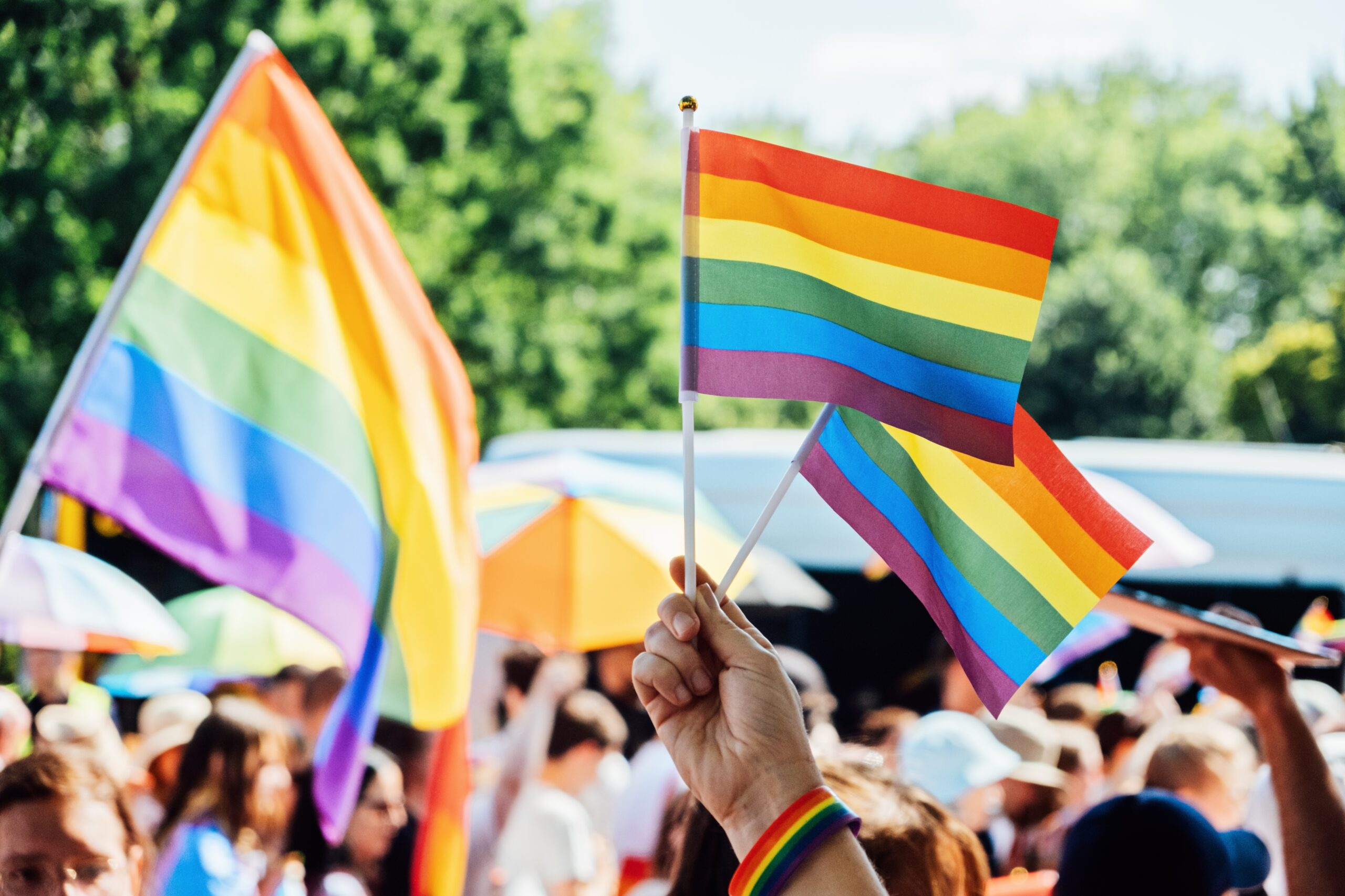

PRIDE: The uprising for equitable LGBTQ+ rights
By: Omar A. Escontrías, DrPH, MPH, Senior Vice President of Equity, Research and Programs
The LGBTQ+ community faces unique health care
needs, and access to mental health treatment without
stigma is among the most pressing.
-Admiral Dr. Rachel L. Levine
17th Assistant Secretary for Health
United States, Department of Health and Human Services
As I walk through DuPont and Logan Circles, two Lesbian, Gay, Bisexual, Transgender, Queer/Questioning (LGBTQ+) friendly neighborhoods in the heart of Washington, DC, I am in awe by the prominent rainbow flags, rainbow crosswalks, and equality symbols that adorn houses, restaurants, businesses, and other establishments in celebration of Pride month. However, these feelings of proudness must acknowledge the sacrifice of LGBTQ+ leaders who paved the way for the progression of equality. For historical context, PRIDE, which stands for Personal Rights in Defense and Education, was an organization founded in 1966 that led bold and aggressive efforts against the oppression of LGBTQ+ people by the Los Angeles Police Department.[1] A few years after, in the pursuit of equality, transgender activists, Marsha P. Johnson and Sylvia Rivera galvanized the gay rights movement through the 1969 Stonewall Uprising against police brutality and the persecution of the LGBTQ+ community in New York City. Johnson and Rivera, as two transgender women of color, are perfect examples of the intersectionality that exists between race/ethnicity and the continued struggle for marginalized communities advocating for equal rights for LGBTQ+. Each year, Pride month is celebrated in June to commemorate the uprising at The Stonewall Inn.
Historically, the LGBTQ+ community has encountered many challenges in the pursuit of equality, including health. During the crisis of the 1980s, the spread of the human immunodeficiency virus (HIV) was coined by health care professionals as the “gay cancer” and Gay-Related Immune Deficiency (GRID), adding societal stigma and hysteria against LGBTQ+ individuals. It was not until 1982 that GRID became known as the acquired immunodeficiency syndrome (AIDS) by the Centers for Disease Control and Prevention. Nonetheless, nationwide advocacy efforts, health campaigns, and other outreach initiatives to understand and curb HIV/AIDS in men were centered only on white gay men, which excluded other historically underrepresented racial/ethnic (HURE) men from treatment. Therefore, the lack of patient-level data across various demographics and the exclusion of LGBTQ+ patients of color in clinical trials for antiretroviral medications gave rise to the growth in HIV/AIDS disparities that still prevail today.
Conducting health equity research to reduce health disparities in the LGBTQ+ community must be a concerted effort. Since the rise of the HIV/AIDS epidemic, the LGBTQ+ patient community has advocated for the inclusion of sexual orientation and gender identity (SOGI) data across the health care ecosystem to improve health outcomes. Furthermore, the lack of SOGI data integration into health care decision-making can lead to delays in HIV screenings, referrals to therapeutics, access to preventive services, diagnoses, and insurance coverage.[1] Collecting SOGI data through electronic health records is vital to providing high-quality patient-centered care and may help improve patient-provider relationship, meaningful dialogue, and trust.[2]
Despite recommendations in garnering SOGI data and improving the inclusion of LGBTQ+ patients in clinical trials, the U.S. currently faces challenging times in the provision of LGBTQ+ care. According to the Human Rights Campaign, the weaponization of public policy to curtail LGBTQ+ rights is more extreme than ever.[3] In 2023 alone, there have been more than 500 anti-LGBTQ+ bills introduced and passed in state legislatures across the country. More than 125 of these bills will prevent transgender youth to access age-appropriate medical care.[4] Some laws seek to penalize health care workers providing care to transgender youth through the removal of medical licenses and prohibition of public funds to be used for the provision of gender-affirming care. In addition, these public policies have an indirect correlation with worsening mental health through the rise of anxiety, depression, and other mental health disorders. According to the American Psychiatric Association, LGBTQ+ individuals are 2.5 times more likely than heterosexual men and women to suffer from depression, substance misuse, and anxiety.[5] These political realities will have a detrimental impact on the mental health and care of LGBTQ+ patients for many years to come.
Though Pride month is a time to celebrate and be your proud and authentic self, like Marsha P. Johnson and Sylvia Rivera, and the countless advocates that have come before us, patient advocacy organizations must continue to advocate for just and equitable policies and health care in the name of the LGBQT+ community.
References
[1] Kaiser, Charles. The gay metropolis: The landmark history of gay life in America. Grove Press, 2007.
[2] Streed Jr, Carl G., et al. “Sexual orientation and gender identity data collection: clinical and public health importance.” American Journal of Public Health 110.7 (2020): 991-993.
[3] Collecting Sexual Orientation and Gender Identity Information. Centers for Disease Control and Prevention. At: https://www.cdc.gov/hiv/clinicians/transforming-health/health-care-providers/collecting-sexual-orientation.html. Accessed. Jun 12, 2023.
[4] Roundup of anti-LBTQ+ Legislation Advancing in States Across the Country. At: https://www.hrc.org/press-releases/roundup-of-anti-lgbtq-legislation-advancing-in-states-across-the-country. Accessed: June 12, 2023.
[5] Ibid.
[6] Diversity & Health Equity Education: Lesbian, Gay, Bisexual, Transgender and Queer/Questioning. At: https://www.psychiatry.org/psychiatrists/diversity/education/lgbtq-patients. Accessed: June 12, 2023.


